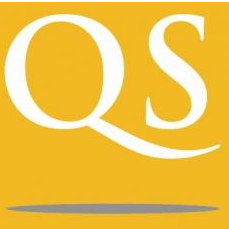Samara National Research University entered top-100 QS World University Rankings: BRICS according to the British company Quacquarelli Symonds.
For the first time Samara University entered the authoritative ranking of the best universities of BRICS countries (QS University Rankings: BRICS) in 2015. In 2017 the university demonstrated the swift growth and improved its rates immediately for 58 positions. The university shifted from the group of the higher education institutions being in the interval “151-200” to the 93d position.
This year the 300 best universities from BRICS, out of them 68 institutions represent Russian higher school entered the published part of the international ranking. 25 Russian universities, i.e. 6 universities more than a year before, enter the top-100.
The compilers of the research note that “this year Russia has demonstrated its best results in the whole history of the ranking”. “Not any other out of 5 BRICS countries can boast such success. This indicates that Russian universities are developing more dynamically in comparison with their competitors from BRICS”, - RIA News quotes the organisers.
RIA News also notes that the universities – participants of Project 5-100 having entered 100 of the best ones of this research showed a noticeable growth in comparison with the indicators of the previous year. These are National University of Science and Technology MISIS (+26 positions), HSE (+23 positions), RUDN University (+21 position), MIPT (+19 positions), TSU (+17 positions), National Research Nuclear University MEPHI, TPU and KFU (all for +15 positions), NSU (+9 positions), FEFU (+8 positions), SpbSTU (+6 positions) and Samara University (+58 positions).
Samara University Rector Evgeniy Shakhmatov believes that entering of the university in 100 of the best universities of BRICS countries indicates the correctness of the chosen strategy. “The dynamics shown in the ranking reflects the structural and qualitative changes taking place at Samara University both in scientific and educational processes. This year Samara University showed the greatest dynamics in such directions as academic reputation, reputation among the employers, and quota of the international lecturers and students. We have achieved this due to the participation of the university in the Federal academic excellence programme of the leading Russian universities “5-100”, - the Rector makes the point.
Evgeniy Shakhmatov emphasizes that the university is striving for entering the number of the leading scientific and educational world centres and that is why the work on international cooperation has been intensified since 2013.
In the Rector’s opinion the strengthening of the university positions in such a criterion as reputation among employers is explainable. “Demand for our graduates by the employers is confirmed by the results of the annual monitoring of the Ministry of Education and Science of the Russian Federation. Samara University graduates work in leading Russian and international companies and that is why their opinions about the quality of the received education assists the advancement of the university at the international level”, - Evgeniy Shakhmatov adds.
Vice-rector for Educational and Foreign Affairs Vladimir Bogatyrev draws attention to the fact that one of the criteria on which the international research is based is the number of international lecturers and students. And according to this indicator the university also shows a good dynamics: “At Samara University all the necessary conditions are being created for this: we invite the leading international lecturers. They lecture in English and it is claimed by the students who speak only this language. In addition more and more educational programmes in English (now we have 20 of them) in different directions of training appear at Samara University. Foreigners come to us to enter not only engineering, propulsion engineering, cosmonautics, but law and economics as well. Summer schools in foreign languages are held at the university”.
Considering that QS University Rankings: BRICS is a regional ranking, its characteristic feature is that it describes the situation in the high developing economies more precisely and gives the possibility to see in a greater detail the processes of qualitative changes in the organization of scientific, educational and innovative activity”, - Evgeniy Shakhmatov concluded.
For reference
BRICS ranking enters a family of regional ratings of QS agency and bases on the methodology considering not only traditional criteria of annual QS ranking (academic reputation, reputation among employers, citation index, ratio students/lecturers, quota of international students and lecturers), but such criteria as a quota of staff representatives with candidate or doctoral degrees and a number of publications per one lecturer.
